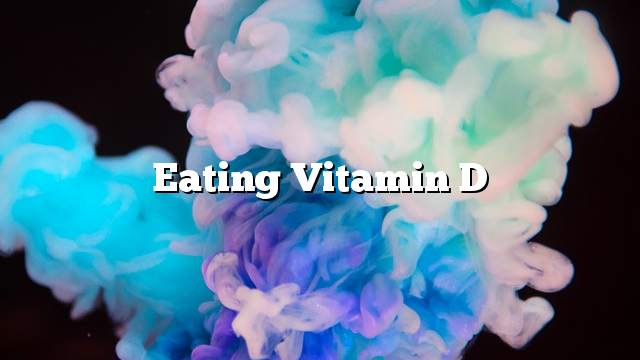Vitamin D
Of the essential vitamins required by the human body to absorb the appropriate calcium, which is very necessary for the growth of bones and cells, and contributes to the improvement of the proper performance of nerves and muscles, and reduces the severity of infections, where the immune system is clearly strengthened, and the body needs an appropriate amount of vitamin D, Six hundred international units, and the toxicity of this vitamin between 10,000 to 40,000 IU per day.
Vitamin D deficiency leads to many diseases, such as: rickets, a bone disease, where the person can not stand on his feet in the right position, it weakens the immune system, increases the risk of cancer, weakens hair growth and leads to falling, and causes fragility In the bones, but increase in the body cause sudden heart attacks, and kidney stones; in order to increase the proportion of calcium absorption in the body in high quantities.
The body gets vitamin D through its solubility in foods. It is soluble, especially in fat. Vitamin D is high in fatty fish, fish oils, and less in beef, cheese, liver, egg yolks, and types of mushrooms. Vitamin D can be obtained through exposure to sunlight, so it is called vitamin sun, and we will mention in this article foods rich in vitamin D.
Eating Vitamin D
- Cod liver oil: Contains a very high percentage of vitamin D.
- Fish: There are many species of fish that contain a high proportion of vitamin D, and raw fish is more rich in this vitamin than cooked fish, and you can find these fish in sushi, herring, canned salmon, raw mackerel, canned mackerel and tuna oil.
- Oysters: Large sources of vitamin B12 in addition to vitamin D, zinc, iron, manganese, selenium and copper, and is characterized by a high level of cholesterol.
- Black and red caviar: rich in vitamin D, as it is found in sushi.
- Soy: Vitamin D-fortified milk products.
- Eggs: Contains mainly vitamin B12, in addition to vitamin D, and protein.
- Mushrooms: characterized by its high value nutritional benefits, such as: Vitamin D, B 5, Copper.
- Juices and dairy products: high sources of calcium, therefore contain a large amount of vitamin D.
- Scientific studies have shown that there are specific types of foods that contain very low amounts of vitamin D, of these foods include: tuna, salmon, beef, liver, yolks, and cheese.
